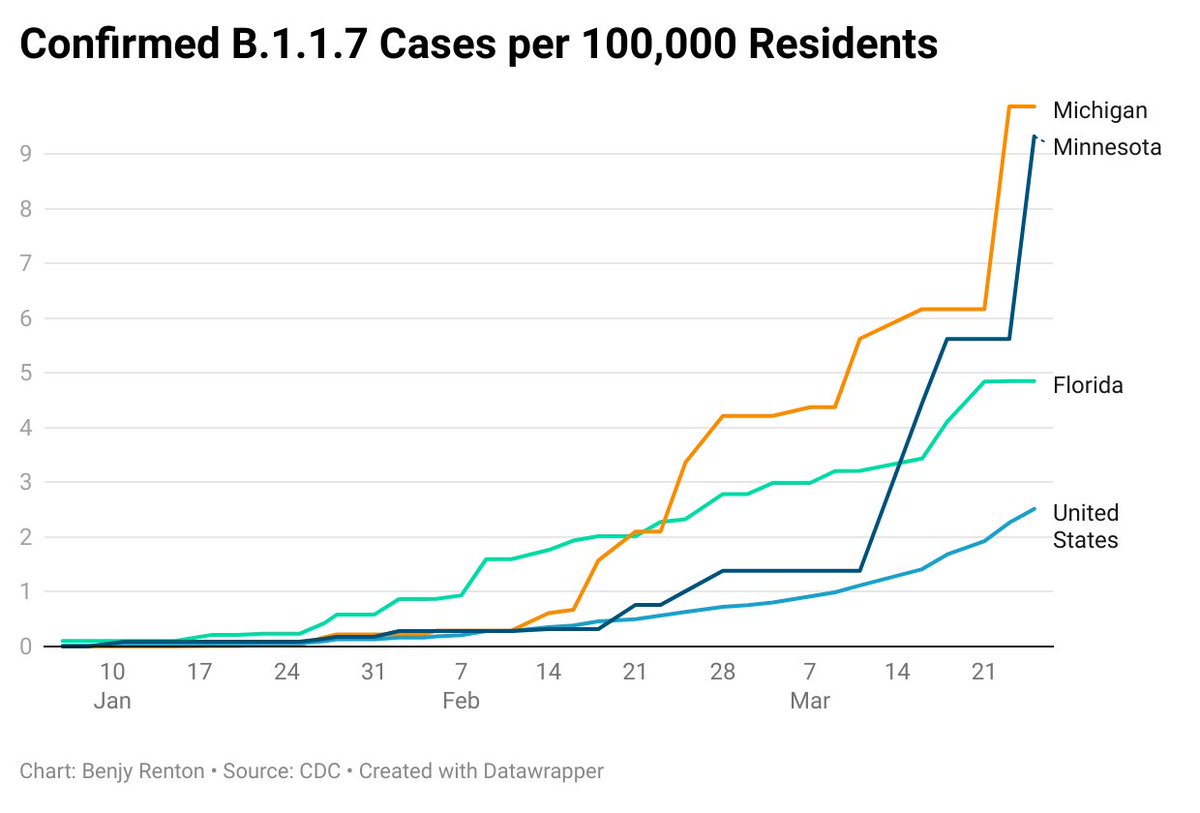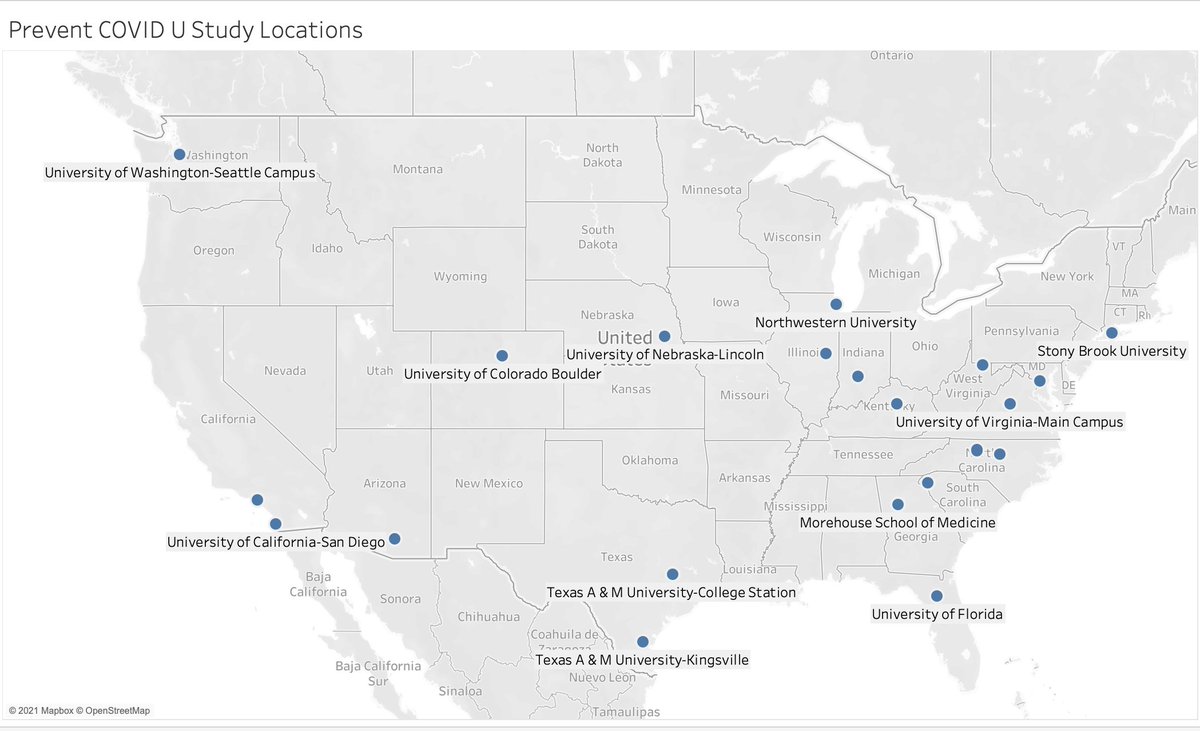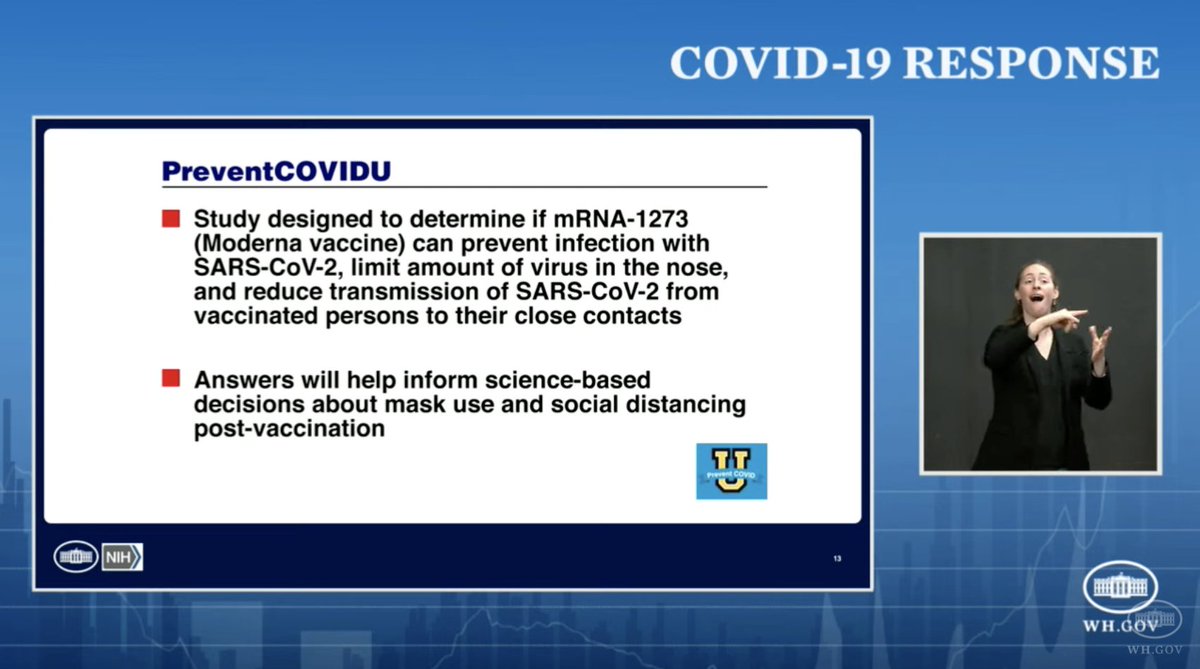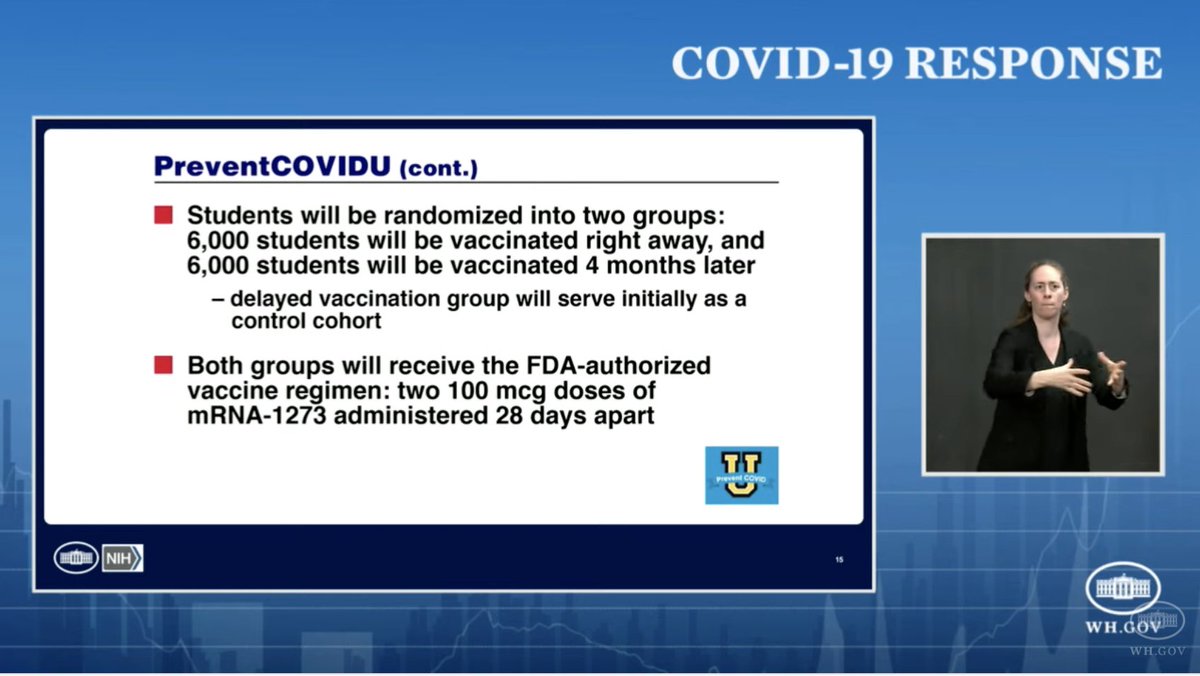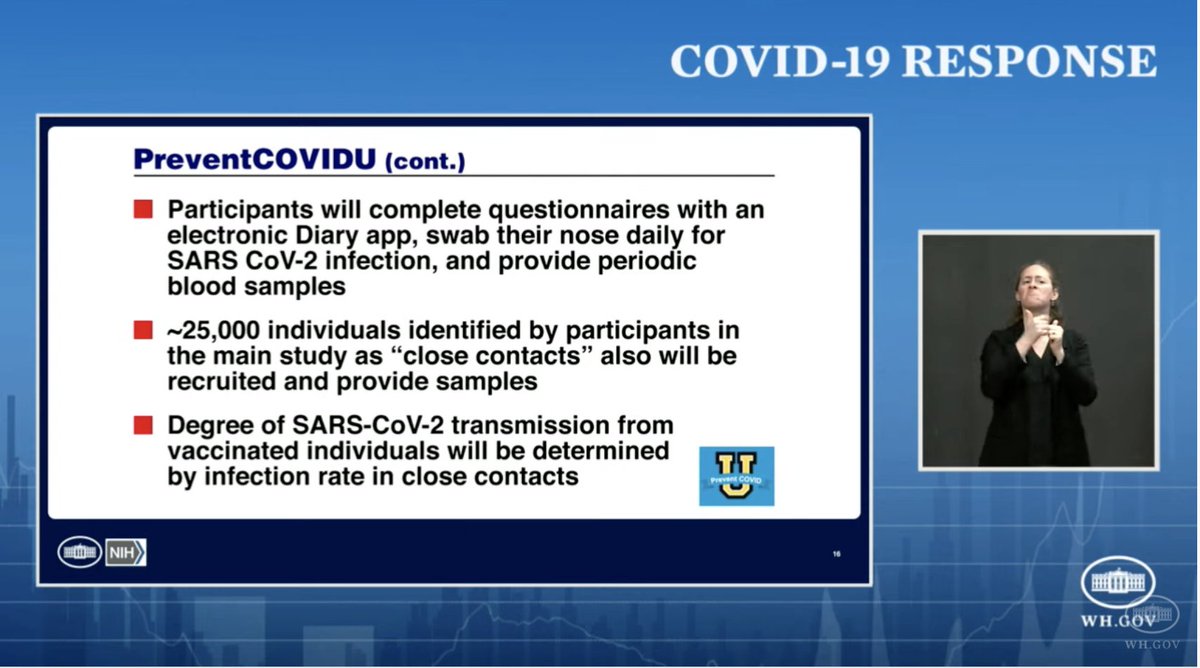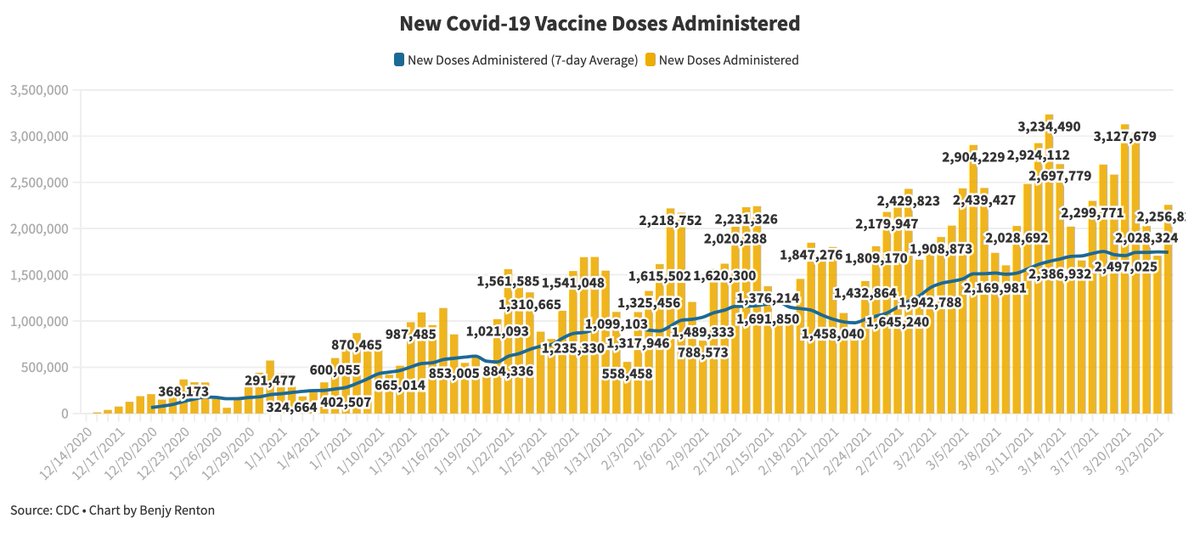
Now on @CNN: @drsanjaygupta unpacks the U.S.' Covid-19 missteps and lessons learned with the nation's top doctors in a special documentary entitled #CovidWar. Follow along here for highlights. 







Was there a moment when you thought this was the big one?
"When I saw what happened in New York City…it was like oh my goodness. That’s what it became very clear that the decision we made on January 10 to go all-out and develop a vaccine may have been the best decision."
"When I saw what happened in New York City…it was like oh my goodness. That’s what it became very clear that the decision we made on January 10 to go all-out and develop a vaccine may have been the best decision."

On February 21, government officials and doctors held a simulation exercise in the Situation Room. "While containment was ideal," Dr. Robert Kadlec says, "it’s more likely than not that this virus is already in the United States and we needed to be prepared to go to mitigation." 

Dr. Gupta asks, Why were we still saying the risk to Americans was low at this point?
Dr. Birx: "So now you know why I came to the White house, because I could see the avalanche coming and I could see we were not prepared. I thought I could do something."
Dr. Birx: "So now you know why I came to the White house, because I could see the avalanche coming and I could see we were not prepared. I thought I could do something."
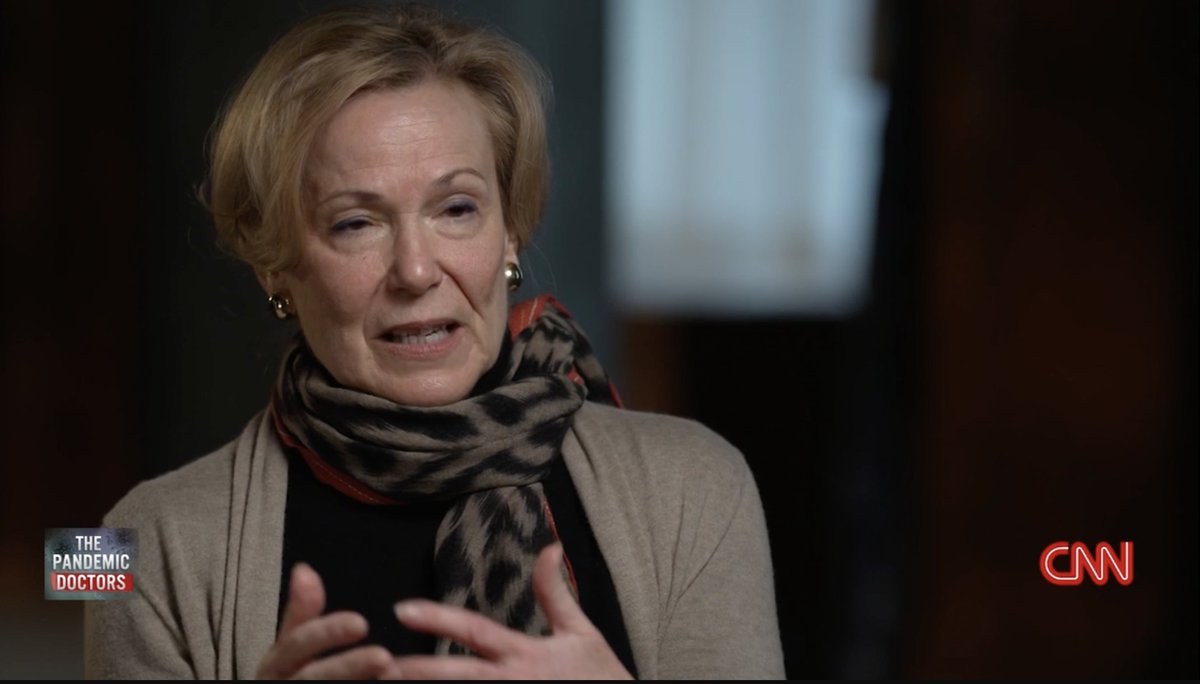
When you walked into this pandemic, how far behind do you think we were at that point?
Dr. Giroir: "We had no systems in place. The way to find out how many ventilators were in place was to call up and find out."
Dr. Giroir: "We had no systems in place. The way to find out how many ventilators were in place was to call up and find out."
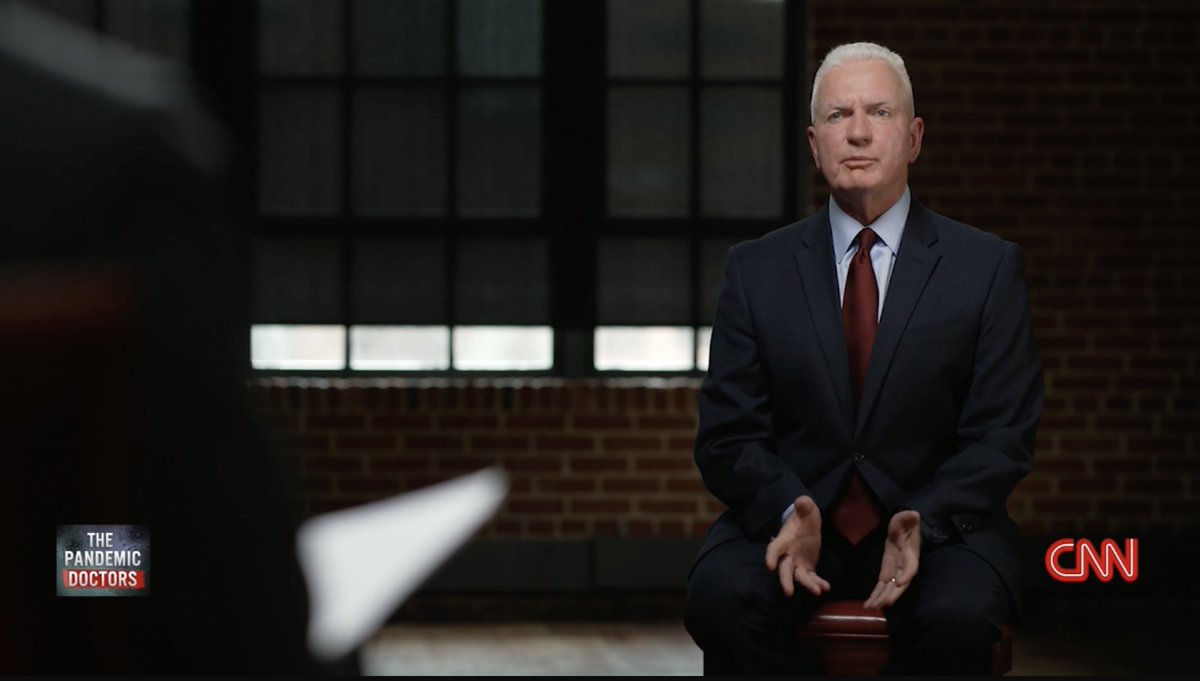
"People really believed in the White House that testing was driving cases, rather than testing is a way for us to stop cases," Dr. Birx said. "Testing was this flashpoint. It continued to be a flashpoint." 
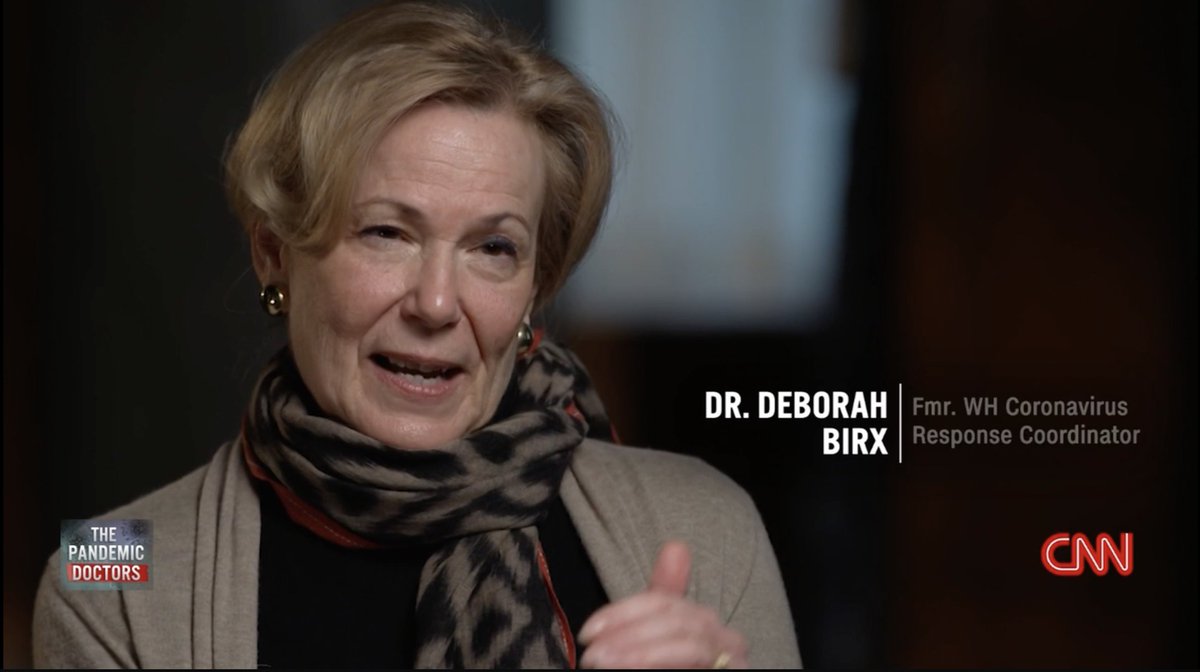
CNN reached out to Dr. Atlas for comment for this documentary. He did not respond.
The doctors devised a set of guidelines which turned into 45 days to slow the spread of the virus. However, states opened too quickly.
"When Memorial Day came it was shocking," Dr. Birx said.
"That's when I believed there was really a problem," Dr. Fauci said.
"When Memorial Day came it was shocking," Dr. Birx said.
"That's when I believed there was really a problem," Dr. Fauci said.

"The thing that hit me like a punch to the chest was then all of a sudden he got up and said, 'Liberate Virginia, liberate Michigan,' and I said to myself, 'oh my goodness, what is going on here?'" Dr. Fauci says. 

"There was one event in the Rose Garden. It was made clear that they didn't want us wearing masks," Dr. Birx said. "They didn't want us front and center and masked." 

In March, the FDA issued an EUA for hydroxychloroquine.
Do you think you would have done the same thing if President Trump wasn’t touting it?
"Given the publicity around hydroxychloroquine, if there hadn’t been that publicity, the need…wouldn’t have been there."
Do you think you would have done the same thing if President Trump wasn’t touting it?
"Given the publicity around hydroxychloroquine, if there hadn’t been that publicity, the need…wouldn’t have been there."

Wow. The Dr. Redfield quote in full: "I was on more than one occasion called by the Secretary [Azar] and his leadership directing me to change the MMWR. Now, he may deny that but that’s true. The one time that was the most egregious was not only was I pressured by the Secretary… 
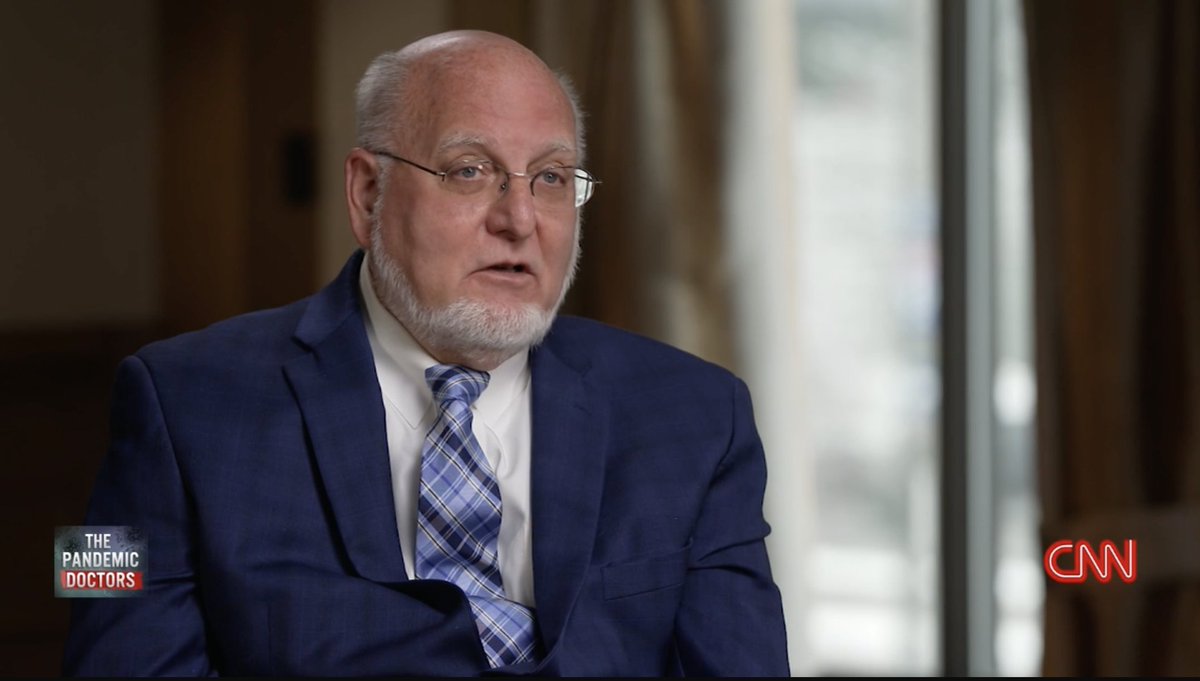
…and his office and his lawyers, as I was driving home his lawyer and his chief of staff called and pressured me again for at least another hour, even to the point of accusing me of failing to make this change that would cost thousands of lives. And I finally hit a moment…
…in life where I said, enough’s enough. If you want to fire me, fire me, I’m not changing the MMWR."
Statements from former Secretary Azar and his staff refute Dr. Redfield's claim.

Statements from former Secretary Azar and his staff refute Dr. Redfield's claim.


Dr. Birx describes the local strategy she took starting in the summer.
"I was not capable of keeping the White House on a message," she said. "[The VP] looked at me and said you do what you need to do. To me that was permission to take the message that I needed."
"I was not capable of keeping the White House on a message," she said. "[The VP] looked at me and said you do what you need to do. To me that was permission to take the message that I needed."
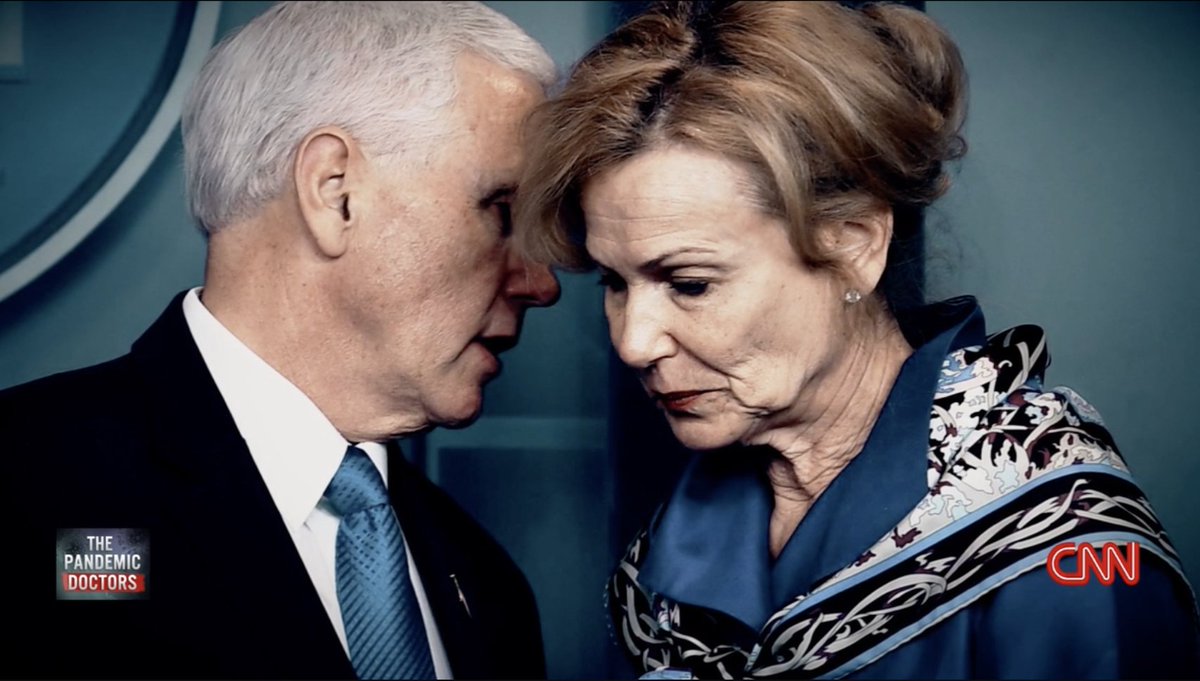
Were you being censored?
"Clearly someone was blocking me from doing it. My understanding was that I could not be national because the president might see it."
"Clearly someone was blocking me from doing it. My understanding was that I could not be national because the president might see it."

In August, Dr. Birx said that the U.S. was in a "new phase" of the pandemic.
"I got called by the president…I would say it was even more direct than what people have heard."
Were you threatened?
"I would say it was a very uncomfortable conversation."
cnn.com/2020/08/02/pol…
"I got called by the president…I would say it was even more direct than what people have heard."
Were you threatened?
"I would say it was a very uncomfortable conversation."
cnn.com/2020/08/02/pol…
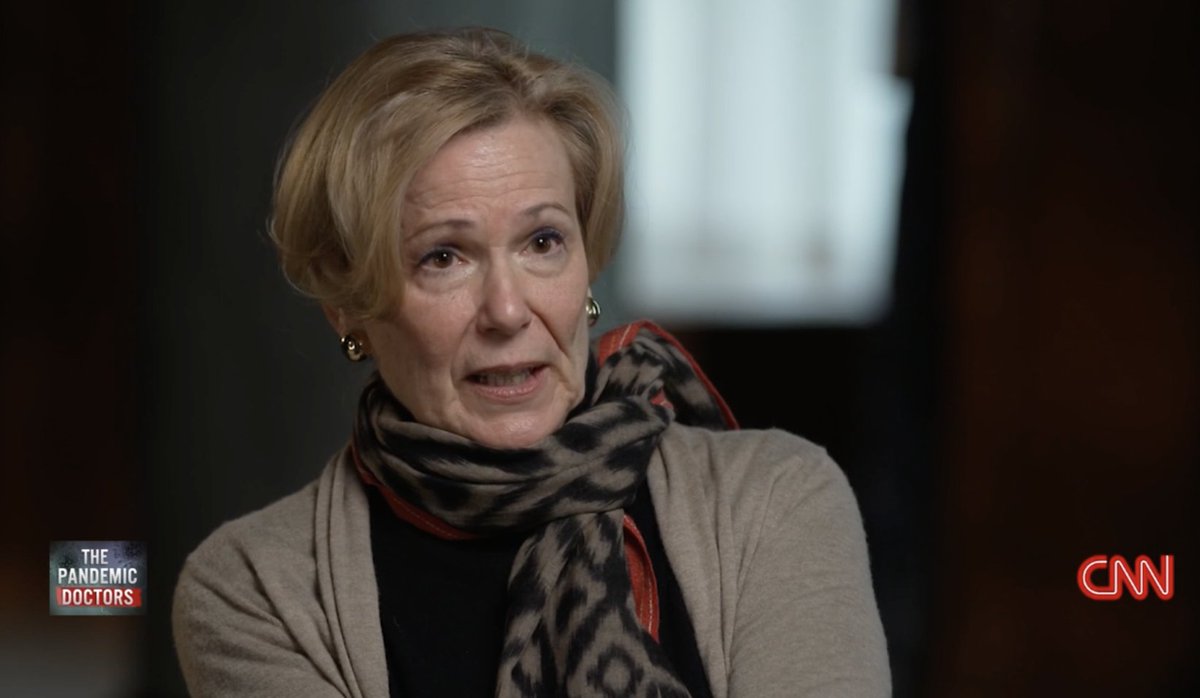
Towards the end of the year, Pfizer announces its clinical trial results. "I get a call on my cell phone and it's Albert Bourla. He said, 'Tony, are you sitting down?'" Dr. Fauci says. "He said it's more than 90%…It was just like this emotional catharsis." 

Dr. Hahn says that he never received a call saying, "we want a vaccine before Election Day."
"Get it out as quickly as possible? Yes, to save lives.…we did not play politics with respect to the timing of the release of the data."
"Get it out as quickly as possible? Yes, to save lives.…we did not play politics with respect to the timing of the release of the data."

Both Dr. Hahn and Dr. Redfield believe their positions should not be political.
"Having a set term…I think there are real benefits to the consideration of that."
"This job should be a 7-10 year appointment.I think these are important jobs to get out of the political cycle."
"Having a set term…I think there are real benefits to the consideration of that."
"This job should be a 7-10 year appointment.I think these are important jobs to get out of the political cycle."

Dr. Giroir: "I felt the lives of everyone’s grandmother on my shoulders."
Dr. Birx: "You can’t look at any of this and say it was okay."
Dr. Giroir: "We have a terrific sick care system. We don’t have a public health or well care system."
Dr. Birx: "You can’t look at any of this and say it was okay."
Dr. Giroir: "We have a terrific sick care system. We don’t have a public health or well care system."

At the end of every autopsy is the primary cause of death.
Birx: "Not being as prepared as we thought we were and not implementing what we knew work."
Giroir: "Lack of transparency early on."
Redfield: "We lacked the public health infrastructure."
Birx: "Not being as prepared as we thought we were and not implementing what we knew work."
Giroir: "Lack of transparency early on."
Redfield: "We lacked the public health infrastructure."

Fauci: "The environment in which the outbreak occurred in our country."
Hahn: "We were so divided."
Kadlec: "Hubris…there was this idea somehow we could weather our way through this."
Hahn: "We were so divided."
Kadlec: "Hubris…there was this idea somehow we could weather our way through this."
"Where do we go from here? As bad as this was, it could be worse, and there will be another pandemic, guaranteed," Dr. Kadlec said. 

Former Surgeon General Dr. Jerome Adams declined to be interviewed for this documentary. CNN reached out to former President Trump and Vice President Pence, to no response.
See more highlights here on CNN. cnn.com/health/live-ne…
• • •
Missing some Tweet in this thread? You can try to
force a refresh




